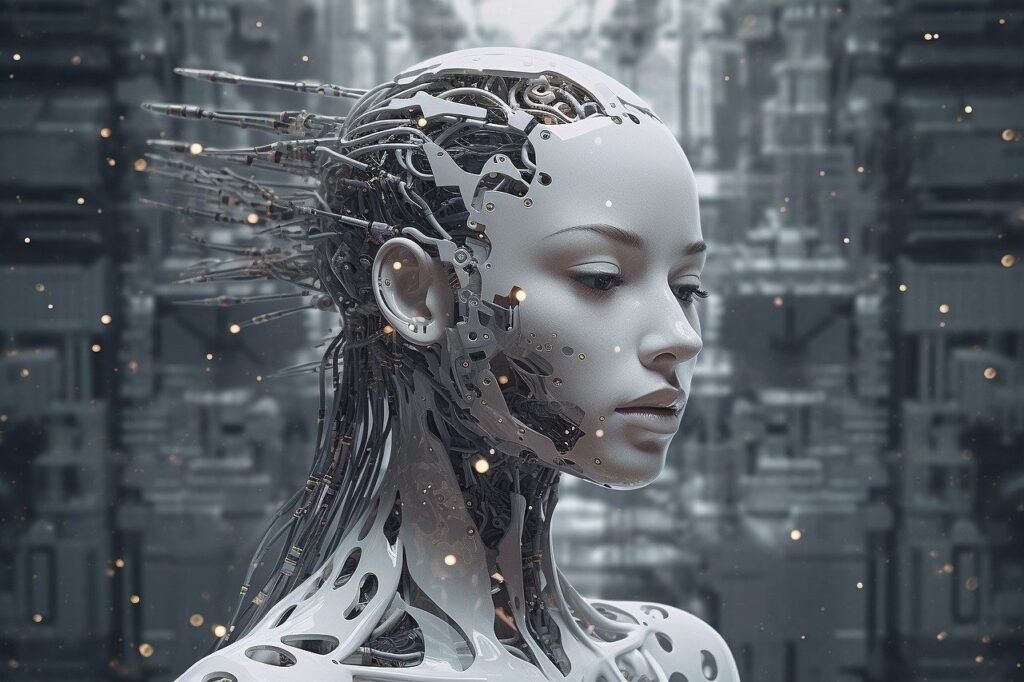Artificial Intelligence Technology: 5 Applications of AI Technology

Artificial Intelligence (AI) is transforming the world as we know it. From healthcare to finance, education to entertainment, AI technology is making processes more efficient, enhancing user experiences, and creating new possibilities. This article explores the nuances of AI technology, its applications, pros and cons, and answers to some frequently asked questions.
What is Artificial Intelligence?
Artificial Intelligence refers to the simulation of human intelligence in machines programmed to think and learn like humans. These systems can perform tasks that typically require human intelligence, such as visual perception, speech recognition, decision-making, and language translation.
Key Components of AI Technology:
1. Machine Learning (ML): A subset of AI that focuses on enabling machines to learn from data and improve over time without being explicitly programmed.
2. Natural Language Processing (NLP): Enables machines to understand, interpret, and respond to human language.
3. Computer Vision: Allows machines to interpret and make decisions based on visual inputs.
4. Robotics: Involves the design and creation of robots that can perform tasks autonomously or semi-autonomously.
5. Deep Learning: A type of machine learning that uses neural networks with many layers to analyze various factors of data.
Applications of AI Technology:
1. Healthcare:
Diagnostics: AI algorithms help in diagnosing diseases accurately and quickly.
Personalized Medicine: Tailors treatments based on individual patient data.
Robotic Surgery: Enhances precision and reduces recovery time.
2. Finance:
Fraud Detection: Identifies unusual patterns and potential fraud.
Algorithmic Trading: Automates trading processes based on market data analysis.
Risk Management: Assesses and mitigates financial risks.
3. Education:
Personalized Learning: Adapts educational content to individual learning styles.
Virtual Tutors: Provides students with additional support outside the classroom.
Administrative Tasks**: Automates grading and administrative processes.
4. Entertainment:
Content Recommendation: Suggests content based on user preferences.
Virtual Reality: Creates immersive experiences for users.
Content Creation: Assists in generating music, art, and writing.
5. Transportation:
Autonomous Vehicles: Enables self-driving cars and trucks.
Traffic Management: Optimizes traffic flow and reduces congestion.
Logistics: Improves efficiency in supply chain management.
Pros and Cons of AI Technology:
Pros:
1. Efficiency and Automation:
Reduces human error and speeds up processes.
Automates repetitive and mundane tasks.
2. Enhanced Decision Making:
Analyzes vast amounts of data to make informed decisions.
Provides insights that humans might miss.
3. Personalization:
Tailors services and products to individual needs.
Enhances customer experiences.
4. Innovation and Growth:
Drives innovation in various fields.
Creates new industries and job opportunities.
5. Healthcare Advancements:
Improves diagnostics and treatment options.
Enhances patient care and outcomes.
Cons:
1. Job Displacement:
Automates tasks leading to job losses in certain sectors.
Requires workforce reskilling and upskilling.
2. Privacy Concerns:
Raises issues related to data security and privacy.
Potential misuse of personal information.
3. Bias and Discrimination:
Inherits biases present in training data.
Can lead to unfair treatment and discrimination.
4. Dependence on Technology:
Over-reliance on AI can reduce human skills.
Risk of malfunction and system failures.
5. Ethical and Moral Issues:
Raises questions about the ethical use of AI.
Challenges in regulating AI technology.
FAQs About Artificial Intelligence:
Q1: What is the difference between AI and Machine Learning?
A1: AI is a broader concept referring to machines simulating human intelligence, while Machine Learning is a subset of AI focused on machines learning from data and improving over time.
Q2: Can AI replace human jobs completely?
A2: While AI can automate many tasks, it is unlikely to replace human jobs completely. Instead, it will change the nature of work, requiring new skills and creating new job opportunities.
Q3: How does AI impact privacy?
A3: AI systems often require large amounts of data, raising concerns about data security and privacy. It is crucial to implement robust data protection measures to mitigate these risks.
Q4: What are some ethical considerations in AI?
A4: Ethical considerations in AI include ensuring fairness, avoiding bias, maintaining transparency, and protecting privacy. Developing guidelines and regulations is essential to address these issues.
Q5: How can businesses implement AI technology?
A5: Businesses can implement AI by identifying areas that can benefit from automation, investing in AI technologies, training their workforce, and collaborating with AI experts to integrate AI solutions effectively.
Conclusion:
Artificial Intelligence is a transformative technology with the potential to revolutionize various industries. While it offers numerous benefits, it also poses challenges that need to be addressed. Understanding AI’s capabilities and limitations is crucial for harnessing its potential while mitigating its risks. As AI technology continues to evolve, it will undoubtedly shape the future of how we live and work.
Visit our site: https://timebuissnesnews.com/






